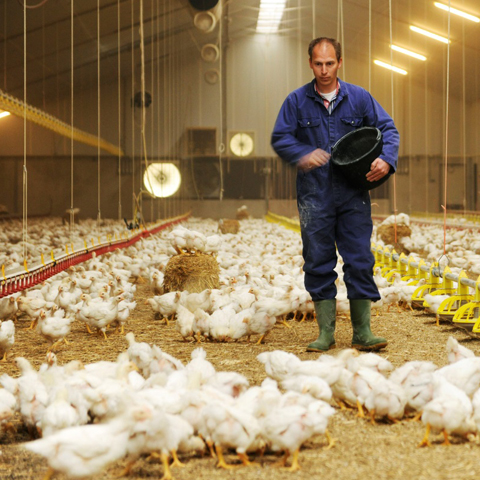Environment Secretary Michael Gove has published a Clean Air Strategy which aims to cut air pollution and save lives, backed up through new primary legislation.
The strategy specifically mentions ammonia emissions from farms as one of the key areas that will be tackled.
Defra said air pollution was the fourth biggest threat to public health after cancer, obesity and heart disease and the new government strategy sets out how it will go further and faster than the EU in reducing human exposure to particulate matter pollution. These proposals are in addition to the government’s £3.5 billion plan to reduce air pollution from road transport and diesel vehicles, set out in July last year.
It is estimated that the action set out will reduce the costs of air pollution to society by an estimated £1 billion every year by 2020, rising to £2.5 billion every year from 2030.
The new strategy, which is now out for consultation, is a key part of the government’s 25 Year Plan to leave our environment in a better state than we found it. Gove said the strategy will target the following areas:
- Our goal that by 2025, we will halve the number of people living in locations where concentrations of particulate matter are above the WHO guideline limit of 10 ug/m3.
- We will introduce new primary legislation, which will give local government new powers to improve air quality.
- We will legislate to ensure only the cleanest domestic fuels will be available for sale, preventing 8,000 tonnes of harmful particulate matter from entering the atmosphere each year.
- For the first time the government will take concerted action to tackle ammonia from farming – which is responsible for 88% of ammonia emissions – by requiring farmers to invest in the infrastructure and equipment that will reduce emissions. Farmers will be supported to achieve this through our new system of public money for public goods.
- We will work with international partners to research and develop new standards for tyres and brakes to enable us to address toxic non-exhaust emissions of micro plastics from vehicles which can pollute air and water.
- We will provide a personal air quality messaging system to inform the public, particularly those who are vulnerable to air pollution, about the air quality forecast, providing clearer information on air pollution episodes and accessible health advice.
- We will put new investment into scientific research and innovation strengthening the UK’s position as a world leader in clean technology and secure further emissions reductions.
Gove added: “Government cannot act alone in tackling air pollution. Our strategy sets out how we will work with businesses, farmers, industry and households to develop innovative new solutions to reduce emissions. It also highlights how we can all take action and play an important role in cleaning up our air.”
You can find more information on air pollution at the new air pollution explainer page.


